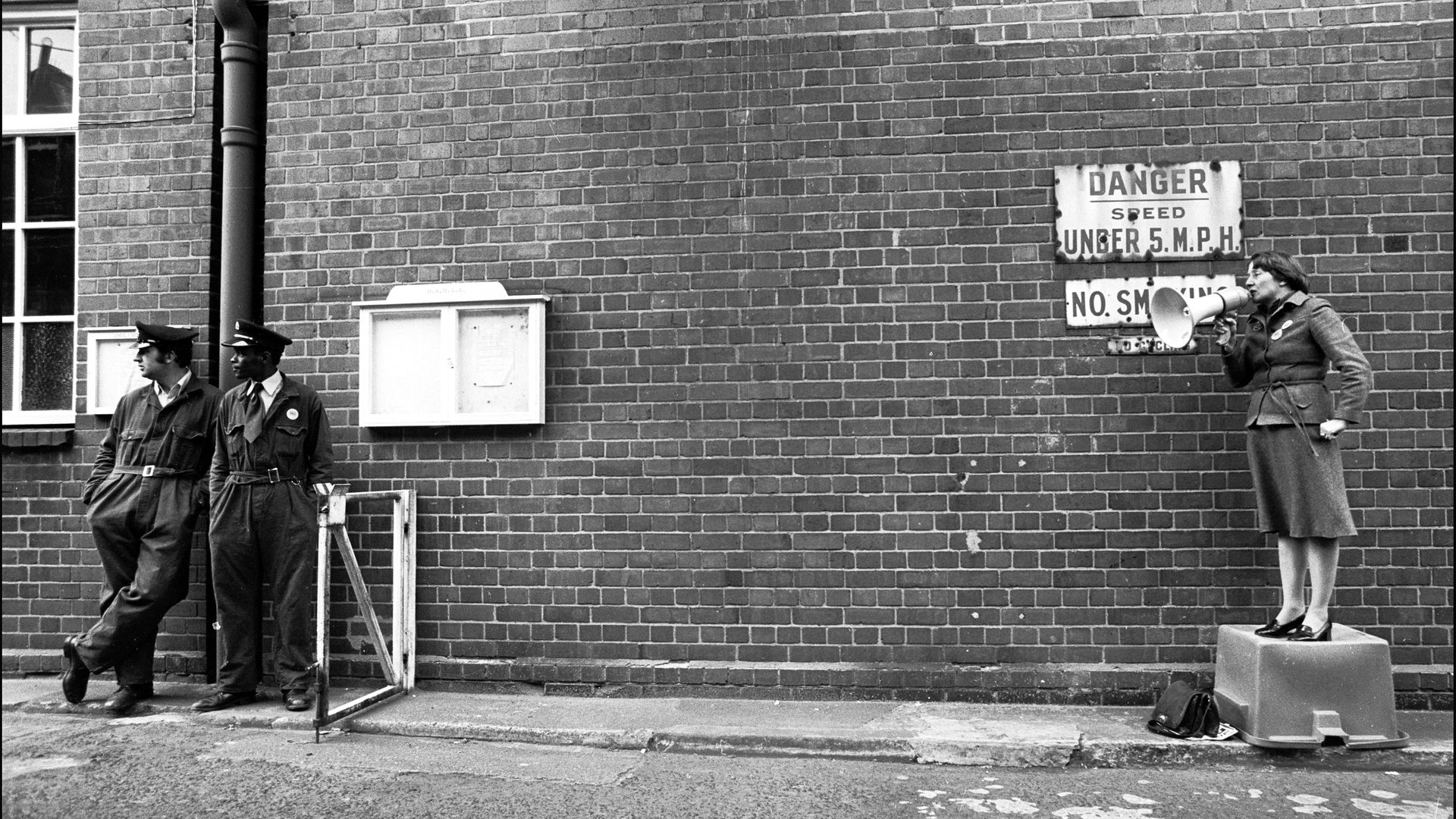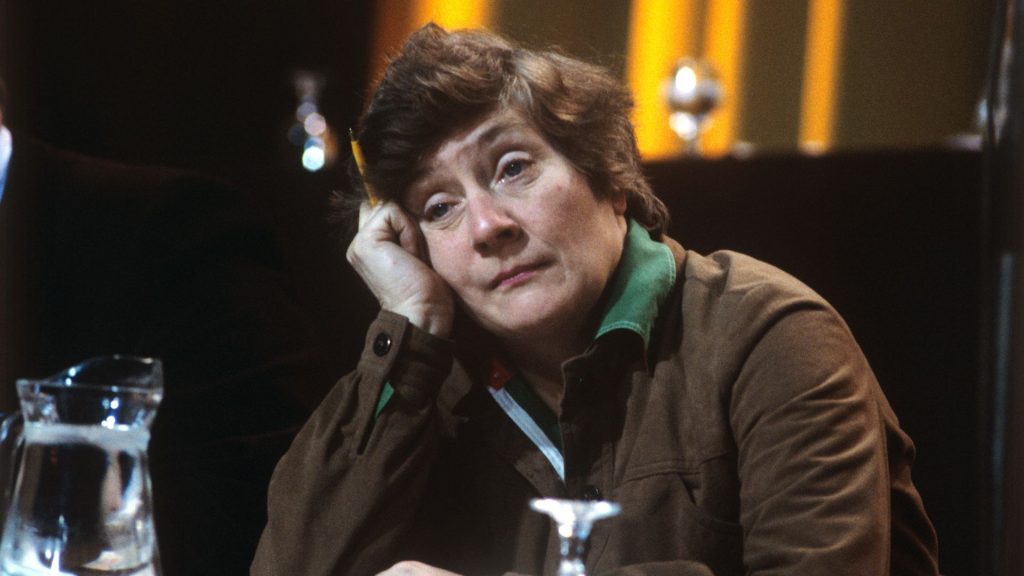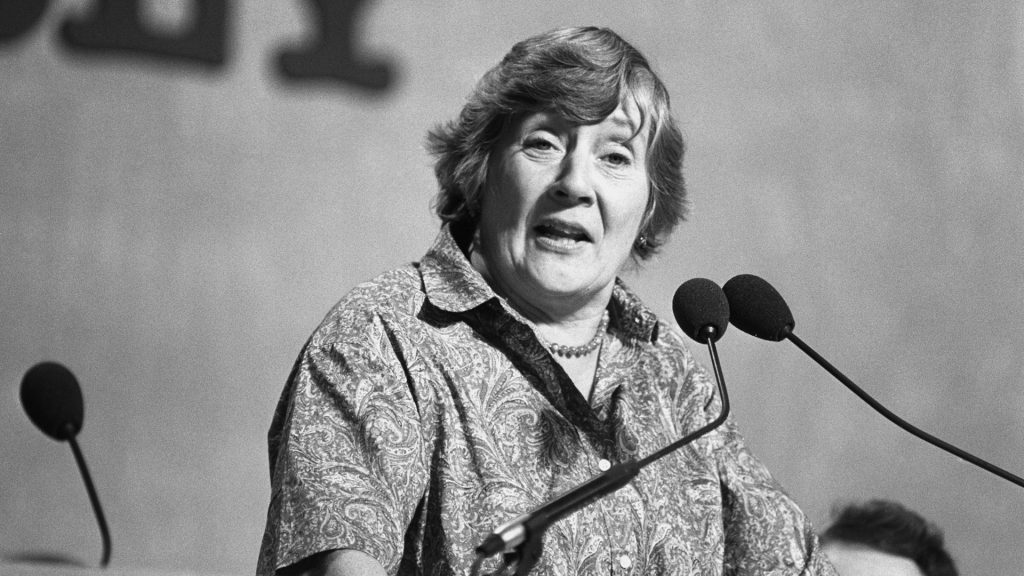
The many chapters in the career of Shirley Williams tell the story of post-war Britain
For all her recent reputation as a well-loved grandmother of British politics, Shirley Williams was not unfamiliar with its sharper edges.
At a 1959 rally in support of independence for Nyasaland (later Malawi) at the Royal Albert Hall, racist hecklers tried to break up proceedings. “Shirley punched a large man several times in the stomach, only to see (husband) Bernard receive a crack on the nose and go flying over a row of chairs,” recalled one participant. “Rather exciting,” was her own comment on the evening.
At the time she was still five years away from entering parliament. Yet, she was already a political veteran by then.
Born in 1930, into a prosperous, middle-class intellectual and intensely political family, her mother, Vera Brittain, was a writer, feminist and pacifist who wrote the bestselling Testament of Youth about her experience and that of other women during the First World War. Her father, Sir George Catlin, was an academic and Labour activist and unsuccessful parliamentary candidate.
As a teenager, her father had introduced her to Lady Astor, the first woman to be elected to parliament, while during the war she spent hours with home secretary Herbert Morrison in an air raid shelter. He took her to lunch at Westminster and became her political mentor.
This early passion for politics resulted in her joining the Labour League of Youth at 17. This commitment to politics continued after she was offered an open scholarship at Somerville College, Oxford. In 1950, she became the first woman to chair the Oxford University Labour Club. She earned a second class degree in politics, philosophy and economics before gaining a Fulbright scholarship at Columbia University, New York, to study economics and trade unions.
But eight months later, Williams returned to the UK, having been selected for her first parliamentary seat at a time when women were a rarity in politics, the safe Conservative constituency of Harwich, at a by-election in 1954. She contested it unsuccessfully again in the 1955 general election, before moving on to a defeat at Southampton Test in 1959. In 1964, she won Hitchin in Hertfordshire for Labour.
Williams worked in journalism while trying to enter parliament, writing for the Daily Mirror and the Financial Times before teaching briefly in Ghana where her husband Bernard Williams, whom she married in 1955, was invited to teach. (The couple were wed until 1987 and had a daughter, Rebecca. Williams later married Harvard professor Richard Neustadt, who died in 2003.) Back in Britain again in 1960, Williams became general secretary of the Fabian Society.
She rose swiftly after entering parliament. Two days after her election, she was made parliamentary private secretary to the health minister. After Labour’s landslide victory in 1966, she was appointed junior minister at the Ministry of Labour, a difficult job at a time of industrial strife.
Subsequently Williams served as education minister, and began to define herself in the public eye, making government funding increases conditional on local education authorities abolishing grammar schools for comprehensives, and also as a Home Office minister with responsibility for prisons. After Labour’s defeat in the 1970 election, she became shadow home secretary.
When Labour returned to office in 1974, she served in a position that no longer exists, as secretary of state for prices and consumer protection, a challenging brief at a time of runaway inflation. When James Callaghan succeeded Harold Wilson, she was made jointly secretary of state for education and paymaster general.

This highly-divisive period saw her condemned by Conservatives already angry about the abolition of grammar schools when she joined a picket line during the Grunwick dispute, where she was arrested before subsequent picket line violence.
But Williams also took on the left over Europe and the economy, describing colleague Tony Benn’s nationalisation plans as “socialism in one country”. These were not new themes for her. She had spoken at the Labour Party conference in 1960 and 1961, opposing plans for further nationalisation and endorsing membership in the European Community.
As Labour’s leftward drift continued and the Conservatives under Margaret Thatcher were on the rise, a Tory candidate defeated Williams in 1979. She spoke at the 1980 Labour conference about the “red fascism” displayed by delegates in the hall who dominated proceedings.
Williams famously broke with Labour in 1981 as part of the ‘Gang of Four’ which included Roy Jenkins, David Owen and Bill Rodgers. Substantial Labour figures, they issued the Limehouse Declaration, named for Owen’s East End riverside home.
The party attracted many moderate Labour members and even some Conservatives. In parliament, 30 Labour MPs and one Tory defected to them. The four founded the Social Democratic Party, modeled on moderate centre-left parties such as the SPD in then-West Germany.
At a time of recession, with an unpopular Conservative government and an ineffective leftist Labour opposition under Michael Foot, the fledging party soared in the polls. Looking for an opportunity to return to parliament, the Crosby by-election seemed the perfect opportunity and Williams won by 5,289 votes, overturning a Tory majority of 19,727.
Another chance arose with a by-election in Warrington, which Jenkins fought and lost before going on to improbably win in the safe Labour seat of Glasgow Hillhead, and become leader of the new party. The SDP’s fortunes might have been different had Williams decided to challenge him, a more popular politician than the somewhat aloof Jenkins.

At one point in 1981, the SDP touched 50% in the polls. But slowly yet surely, its popularity began to wane. Labour remained unpopular under Foot, but the Conservatives’ standing benefited as the economy started to recover and the Falklands War was won.
Yet the political weather had also changed. The post-war consensus that Williams supported had collapsed. Her fondness for it was unchanged, though, telling one interviewer: “We used to be a really lovely social democratic country.”
An alliance with the Liberals beckoned, although there were tensions between Owen as SDP leader and David Steel as leader of the Liberals. The party won 26% of the vote in the 1983 general election, only two points behind Labour. But the first-past-the-post electoral system rewarded the SDP with only 11 seats, compared to Labour’s 269. Thatcher enjoyed a landslide, winning 42% and 397 seats.
The new party did win two by-elections in the 1983-87 parliament. On election day in 1987, the Alliance’s vote fell to 23%, leaving them, with 22 MPs. The prospect of merger with the Liberals seemed a possible road to greater popularity. Williams stood for the Alliance in Cambridge, but lost to the sitting Tory MP.
The parties merged in 1988 with the support of Williams and the other two founders, Rodgers and Jenkins, with David Owen opposed. Owen’s rump SDP faded away ahead of a humiliating 1990 by-election in Bootle, when it came in behind the Monster Raving Loony Party.
From 1988 to 2001, Williams relocated to America, serving as professor at Harvard’s Kennedy School of Government. She remained active in UK and international politics, helping to draft constitutions for Russia, Ukraine and South Africa.
Elevated to the House of Lords in 1993, she led the Liberal Democrats there from 2001 to 2004. In 2007, she accepted a government post as an advisor on nuclear proliferation. Entreated by Tony Blair to rejoin Labour earlier, she declined.
Surprisingly given her liberal views, Williams spoke against equal marriage in the Lords, although she did favour civil partnerships. She was a Roman Catholic who attended church every Sunday. Retiring from the Lords in 2016, she was appointed to the Order of the Companions of Honour, for services to political and public life in 2017.
Her final speech in the Upper House was about the great institutions of the BBC, the NHS and the EU and their importance to our national life. Speaking less than six months before the Brexit referendum, in her speech she said: “I believe this country has a long and great tradition of leadership, increasingly one in which we recognise it is not just national but global. Where we are part of a larger group of human beings seeking a better world and a better life.”
It was a vision that she had devoted her life to.
What do you think? Have your say on this and more by emailing letters@theneweuropean.co.uk









